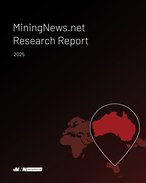This article is 2 years old. Images might not display.
In a presentation made yesterday, Cox outlined how social value was embedded in everything BHP did.
She said it would create a competitive advantage and improve BHP's access to resource, markets, partners, talent and capital.
The six pillars of the social value framework are decarbonisation, environment, Indigenous partnerships, workforce, communities and supply chains.
The 2030 scorecard includes a new goal for the environment which is to create nature-positive outcomes by having at least 30% of the land and water that BHP stewards under conservation, restoration or regenerative practices by 2030.
The scorecard also includes a commitment to partner with communities and stakeholders to co-create and implement plans that deliver jointly defined economic, social and environmental outcomes and integrate their views into how we measure success.
FY23 goals include the release of a revised Global Indigenous Peoples Strategy, the achievement of 100% adherence to sexual assault and harassment programs, the release of equitable transition principles, the publication of context-based water targets, the advancement of 95% of study phase decarbonisation projects and the implementation of LME Responsible Sourcing requirements.
"BHP is hardwiring social value into every level of decision-making across our global business, from company strategy and capital allocation to everyday activities at our operations," Cox said.
"Our new social value framework and 2030 scorecard outline the goals, metrics and milestones against which our investors and stakeholders can measure our progress and performance.
"By embedding social value into the way we do business, we believe we will further strengthen our relationships and access to the best resources, partners, markets and talent to discover and produce the minerals required for global economic development and decarbonisation, which will in turn create competitive advantage."























